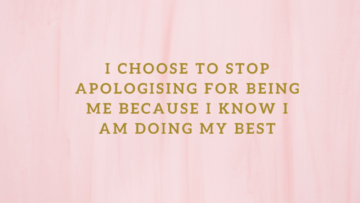
“What if they don’t like me? Who am I to think I can manage a team?” These were some of the questions that kept on bothering me for a good number of years at the start of my career. Have you ever felt like you don’t quite belong or deserve your success? You’re far from alone. Self-doubt and imposter syndrome are common experiences that can hinder our personal and professional growth.
On the one hand, self-doubt involves questioning our capabilities and feeling uncertain about achieving success and on the other hand, imposter syndrome amplifies this by making us feel like frauds, fearing we’ll be exposed as unqualified or unworthy, despite evidence of our competence.
Whereas, others may see our capabilities and acknowledge them our own insecurities can get in the way of us being able to fully live out these truths. Doubting ourselves can and does happen to everyone at some point in life and though some may easily overcome these thoughts and feelings for others it becomes so bad to the extent that they self-sabotage. These aren’t momentary concerns; they can seriously impact mental health and job performance. Studies indicate that a substantial portion of the population will experience imposter feelings at some point, affecting people across various industries and walks of life.
I have come to learn that among the many factors that can lead us to doubt ourselves, the root cause of self-doubt is a lack of self-worth. Yes, when we don’t acknowledge ourselves as being deserving of the good that happens to us we tend to disregard all the other elements that might lead to us attaining a specific desire or status. One other source to mention is the unwritten societal standards that normally put us into specific categories.
Growing up in Scandinavia and being of African descent, I was most of the time the only black girl/lady in a class or office and though nothing discriminating was said or done I could not help it at times to feel self-conscious and doubt my presence among the groups. I’d normally deflect compliments and being acknowledged because I didn’t feel myself deserving of these.
An intriguing aspect of this phenomenon is the universal nature of these experiences. From students to executives, many individuals report the inner narrative that their achievements are due to luck or error, not merit or hard work. It’s a challenge that spans gender, age, and cultural divides, although research suggests that women and minority groups may experience it more intensely.
In retrospect, I can see how the overworking and zealousness were just my way of trying to fit in and prove myself. It’s also made me quite aware of some of the character traits to be mindful of or bring to attention, so now let’s take a look at some of the signs that indicate you or someone you know might be grappling with self-doubt or imposter syndrome. In the next section, we will bring these into focus, with the intention of helping us to recognize and ultimately overcome them.

Recognizing the Signs of Imposter Syndrome
If you pay attention to your inner dialogue could you recollect a time when you were having thoughts like –
“Why should they listen to me?”
” Maybe I need another certification before people will believe I am qualified enough”
… and the list goes on. Imposter syndrome can manifest in various ways, and identifying its symptoms is the first step to tackling it.
Some common signs of imposter syndrome might include:
- Persistent self-doubt
- A sense of being a ‘fraud’ that will be exposed,
- Attributing success to external factors like luck, and fear of failure.
You may overlook or discount your own expertise and hard work, believing that others are more capable or skilled.
I recall a time when I was promoted to a managerial position. Despite years of experience and a strong track record, I couldn’t shake the feeling that I was only days away from being ‘found out.’ I came to learn that such personal anecdotes are not uncommon, and it’s critical to recognize that these thoughts do not reflect reality.
Imposter syndrome doesn’t discriminate. It affects people of all backgrounds, professions, and levels of experience. Whether you’re a student stepping into a prestigious program, a professional taking on new responsibilities, or an artist displaying your work, imposter syndrome can be an unwelcome guest in your journey to success.
Imposter syndrome may also be disguised in different types of personality traits including the ‘perfectionist’ who is never satisfied with their work, the ‘superhero’ who feels compelled to push themselves to the limit, and the ‘natural genius’ who feels shame when something doesn’t come easily. Understanding which type resonates with you can offer insights into how to best address the feelings associated with imposter syndrome.

Strategies for Overcoming Imposter Syndrome
Like most bad habits in life, imposter syndrome can take over your life and affect your optimum performance but this need not be the case. There are evidence-based strategies you can employ to break free. I’ll detail a few methods that are endorsed by psychology experts. These approaches are not quick fixes, but with consistency, they can help you to gradually get a better understanding of who you are, what you are capable of and embrace your competence.
- First, reframe failure as a learning opportunity. The fear of failing can paralyze you, but when you begin to see failure as a part of life and development and something you can learn from, it shifts your perspective. Start by identifying one instance where what you perceived as failure actually led to growth. This mental shift helps dissolve the strong grip of self-doubt.
- Second, articulate your achievements. Write them down or pat yourself on the shoulder, it might seem vain but there’s something powerful about acknowledging your own self. By doing so, you give yourself evidence of your accomplishments, which is harder to dismiss than recognition from others. When you feel a wave of doubt, return to this list. It’s concrete proof of your skills and dedication – proof that’s undeniable.
- Third, affirm your worth and value. Implementing self-affirmations can be one of the powerful ways to change the thoughts you have about yourself. Recognizing your strengths and highlighting them can be a way to see the value you can also bring to the table.
- Then, express your professional narrative. Journal a narrative about your work and how you’ve reached the point you’re at. Focus on the evidence of your skills and experience, not just on how you feel about them. This can be reinforcing when you need to advocate for yourself or when someone challenges your capabilities, consciously or unconsciously.
- Mentorship is another powerful tool. Connecting with a mentor goes beyond just networking; it’s about finding someone who can provide perspective and validate your work from an experienced standpoint. Moreover, they can guide you in navigating challenges and celebrate your successes, both of which can undercut imposter feelings.
- Lastly, it’s important to realize that the professional world is large and diverse, and there is room for your unique approach and ideas. Normalizing that feeling ‘out of place’ sometimes is part of the human experience, especially in unfamiliar situations, can help mitigate that sense of being an imposter.

Continuing the Journey: Maintaining Confidence and Success
Becoming aware of self-doubt and imposter syndrome is just the start. The ultimate goal is to cultivate a resilient mindset that not only conquers these challenges but also lays the foundation for sustained confidence and success. It’s not about an overnight change but about building habits and thought patterns that support ongoing personal growth.
One such approach is to embrace what I call ‘post-success syndrome,’ which is the inclination to downplay achievements after the fact. Instead of dwelling on doubts post-success, recognize this tendency and reaffirm the skills and effort that contributed to your success.
Developing personal metrics of success that emphasize growth and learning can contribute to a more stable sense of self-worth. This shifts focus from external validation to internal satisfaction, which is less volatile and more within your control.
Take Home Message
Summing it up, in this article we’ve explored some signs of imposter syndrome and ways to address this. Self-doubt and imposter syndrome can be a tough experience no matter who you are. To be able to address this I’d encourage a cycle of self-reflection and adaptability. It’s valuable to periodically reassess goals and personal definitions of success to ensure they align with your values and current situation. Such reflection enables adaptability, an essential trait in a world that’s constantly changing.
Despite personal best efforts, there are times when professional guidance can play a critical role. If self-doubt and imposter syndrome interfere with your well-being or performance, I strongly advise seeking support from a mental health professional.
Finally, overcoming self-doubt and imposter syndrome isn’t a one-time victory; it’s an ongoing process because, at every stage of new development or achievement, the thoughts you are bound to doubt yourself. This process is about building a toolkit of strategies and a supportive network to help manage these challenges. Take pride in your progress and remember, every step forward, no matter how small, is a triumph in its own right.
Thank you for reading if you found this article helpful and have insights I’d love to hear or have questions kindly share them in the comments.
Love & Light
Sheila Daisy




